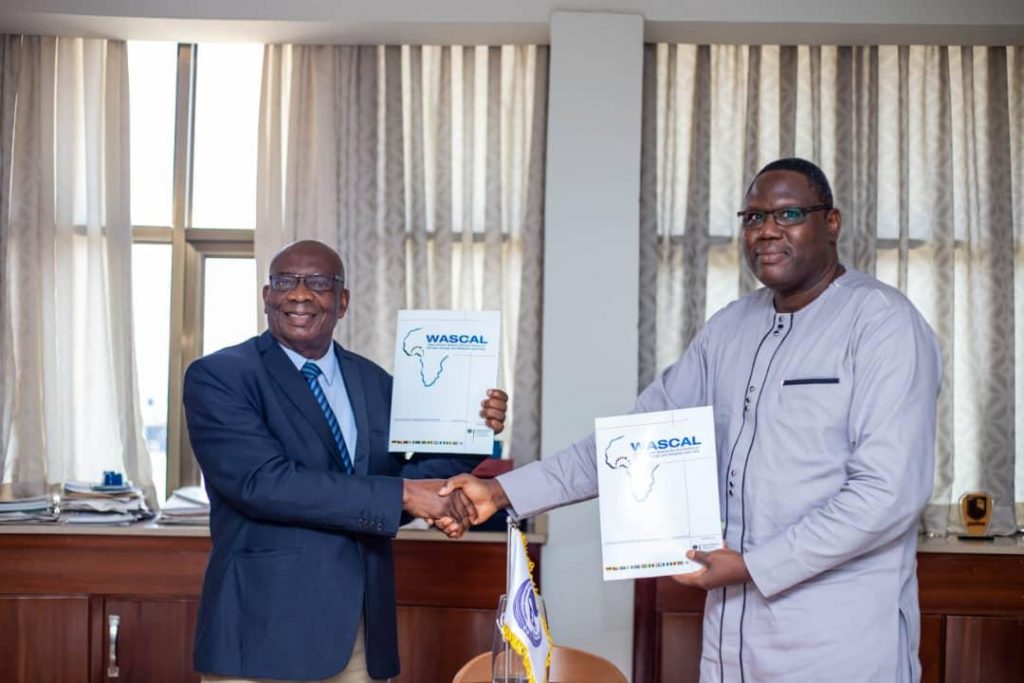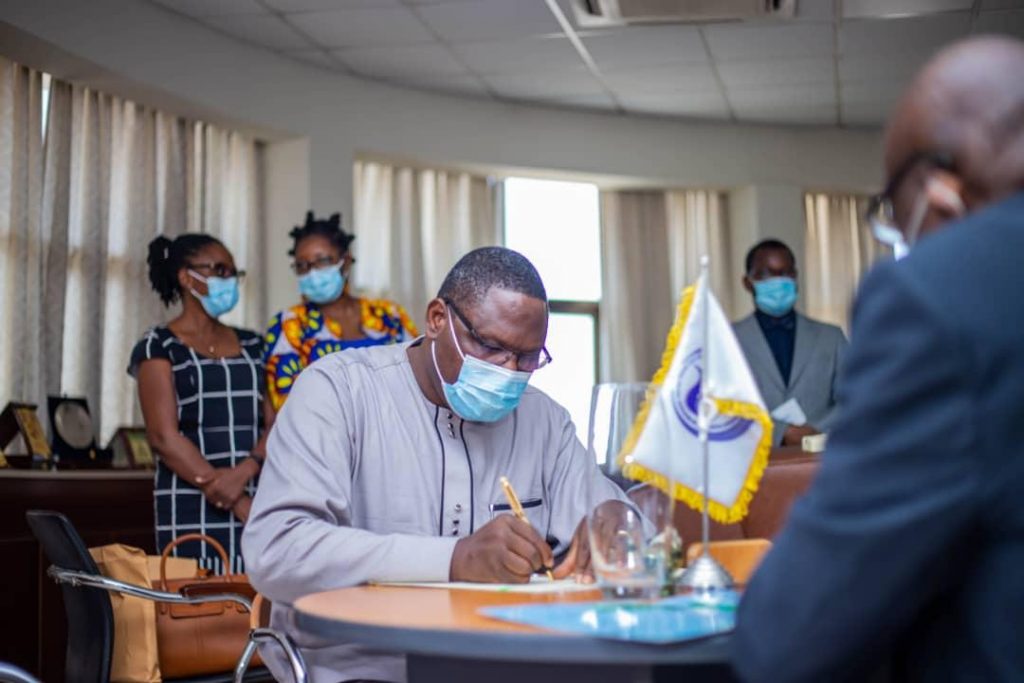
The West African Science Service Centre on Climate Change and Adapted Land Use (WASCAL), and the Association of African Universities (AAU) have signed a Memorandum of Understanding (MoU) to collaboratively build and make provision for tailor made climate and environmental services for development efforts in critical climate smart agriculture, food systems, water and sanitation, renewable energy, urban planning, and habitation.
The MoU seeks to bring the two institutions together to improve the capacities of West African stakeholders in climate forecasting by promoting timely and operational information on climate and environmental risks, such as impending hazards, potential exposures, vulnerability profiles to disaster management agencies, extension intermediaries, policy makers and local communities.
In his statement, the Executive Director of WASCAL, Dr. Moumini Savadogo expressed delight about the collaboration and emphasized the expectations of the MoU.
“I am convinced that the partnership will go a long way to strengthen collaborative research, capacity building, co-develop relevant curricula for the need of transformation education system with more awareness on climate related issues between us.” He said.
The Secretary General of AAU, Prof. Etienne Ehouan Ehile, also emphasized the great opportunities the two institutions look forward to.
“ Through this collaboration, I believe that the opportunity to team up to build and train young professionals, experts, and technicians in support of the resilient socio-development in the context of climate change of West Africa has come”
By this MoU, WASCAL and AAU agree to promote advocacy activities such as development projects aimed at improving gender and youth capacity development concerning Climate Change and its potential impacts and knowledge transfer as well as the use of expertise for insurance quality promotion, monitoring, and evaluation of project development.


